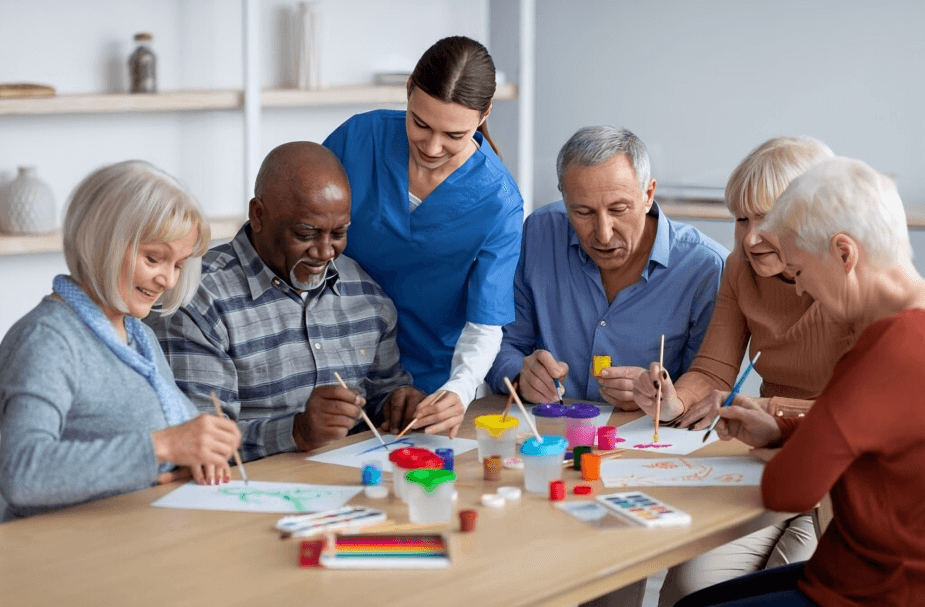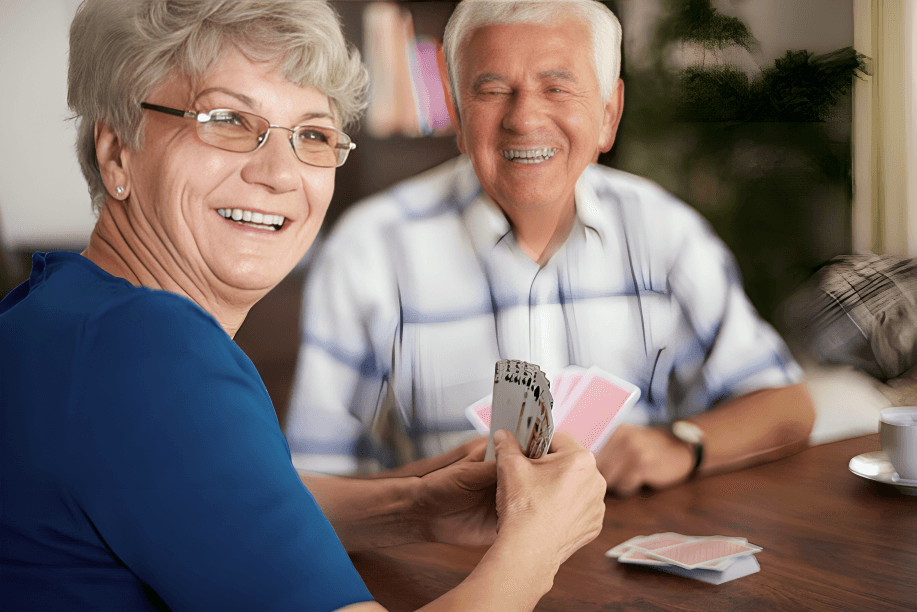
“
Hobbies offer much more than entertainment for older adults—they serve as powerful tools for enhancing well-being. How Hobbies Improve Mental & Physical Health in Seniors is not just a concept—it’s a proven approach that helps seniors stay mentally engaged, physically active, and emotionally satisfied. 1
1
”
Studies show seniors who regularly pursue hobbies like knitting, painting, or gardening report significantly lower rates of depression and anxiety, as creative outlets reduce cortisol and lift mood naturally. 1
Hobbies involving physical movement, such as dancing or light sports, help maintain balance, reduce fall risk, and increase mobility, especially when practiced consistently in a safe and social setting. 2

Crafting, sculpting, and other fine motor hobbies have been found to slow age-related decline in hand coordination, allowing seniors to preserve independence in everyday activities like eating and writing.
Social hobbies like book clubs or group exercises foster connections that combat loneliness and reduce feelings of isolation, both of which are linked to heart disease and premature mortality in elderly people. 3
Gardening offers not only physical activity but emotional nourishment; exposure to soil microbes boosts serotonin levels, while tending to plants instills calm, routine, and responsibility in senior gardeners. 4
Seniors who engage in artistic hobbies report greater self-esteem and improved emotional regulation, as the act of creating something allows them to express feelings that might otherwise remain unspoken. 5
Puzzle-solving hobbies—crosswords, Sudoku, or jigsaw games—strengthen problem-solving ability and keep the brain sharp by encouraging seniors to use memory, logic, and attention together regularly. 6
Volunteer-based hobbies like mentoring or animal care give seniors a sense of purpose, improving both emotional resilience and physical health through regular movement and meaningful social interaction. 7
Seniors with physically engaging hobbies like tai chi or yoga experience better flexibility, lower blood pressure, and improved sleep—all critical components of longevity and graceful aging. 8

Cooking as a hobby enhances sensory stimulation, encourages creativity, and helps seniors maintain healthy nutrition habits by preparing meals rich in vitamins, fiber, and essential minerals for brain and body.
Handicrafts like embroidery and woodworking offer tactile satisfaction and stress relief, helping reduce restlessness and anxiety often associated with cognitive decline or chronic pain conditions. 9
Hobbies offer a structure to the day, which is especially vital for seniors adjusting to retirement or loss—providing routine, stimulation, and a reason to wake up feeling purposeful. 10
Language-learning hobbies increase neuroplasticity by challenging memory and speech centers, which strengthens executive function and may delay symptoms of neurological conditions like Alzheimer’s disease. 11
Seniors participating in theater or storytelling gain confidence and memory strength as they recite lines, remember stories, and engage emotionally with characters, leading to a more dynamic social experience. 12
Birdwatching and nature walks help reduce stress and elevate mood by combining gentle movement with visual and auditory mindfulness—often used in therapy for seniors experiencing anxiety or grief. 13

Chess, card games, and other strategic games stimulate attention span, logical thinking, and emotional control, providing social enjoyment along with measurable improvements in cognitive performance.
Writing memoirs or journaling helps seniors process life experiences, reinforce memory recall, and maintain fine motor skills, while also contributing to feelings of pride, legacy, and personal fulfillment. 14
Painting or doodling has been associated with “flow state” benefits, where seniors become immersed in creativity, allowing for deeper relaxation and reduced feelings of time-related pressure or regret. 15
Group hobbies like singing or drumming encourage synchronized activity and shared rhythm, which boost oxytocin levels, helping seniors feel more bonded and emotionally uplifted in communal environments. 16
Philosopher Confucius once said, “Choose a job you love, and you will never have to work a day in your life”—the same applies to hobbies, which nourish both mind and body without feeling like effort. 17


